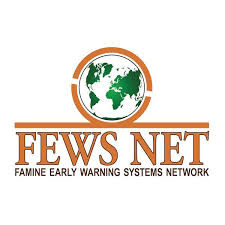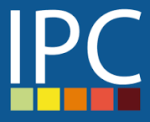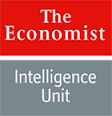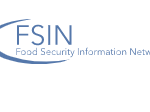Trends
This section provides an overview of resources and platforms that can be used to access data on food trends. It also introduces the Commission policies and instruments to address food insecurity.
Trends
This section provides an overview of resources and platforms that can be used to access data on food trends. It also introduces the Commission policies and instruments to address food insecurity.
The world is currently facing the huge challenge of achieving sustainable food and nutrition security for a growing population with more diverse consumption patterns in the face of increasingly scarce natural resources and impacts of climate change. This challenge is most severe in developing countries where rates of poverty remain high.
There are 821 million chronically undernourished people in the world, up from 811 the previous year. One in nine people in the world now faces hunger. The upward trend of world hunger – after decades of steady decline – yet again underscores the immense challenge of achieving the Zero Hunger target by 2030.
DG ECHO funding for HFA and nutrition in 2012
DG ECHO funding for HFA and nutrition in 2013
DG ECHO funding for HFA and nutrition in 2014
Want more info on food data? – some examples

 https://www.ipcinfo.org
https://www.ipcinfo.org
For more information on IPC please click here  Food security index
Food security index
For country related info please click here 
Factors affecting future HFA interventions – are we ready?
Unprecedented growth, predominantly in the poorest parts of the world (especially sub-Saharan Africa).
Unplanned, urban and peri-urban environments will be home to large concentrations of at-risk populations dependent on markets for food and increased price volatility due to climate change.
Climate change will involve small, fast risk processes embedded in large, slow risk processes.
There will be more extreme climatic events.
Land degradation will be the single most complex and interlinked of all physical climate change consequences.
Reduced access to resources will be the most complex and interlinked of all human climate change consequences, followed by impaired health and heightened mobility.
Population growth + climate change + resource shortages + globalisation = increased mobility/ migration for poor areas to rich ones.
Average number of years people live in dispacement is 17 years.
In 2014, over 90% of countries with annual humanitarian appeals had had such appeals for 3 year or more; 60% for more than 8 years.
By 2030 it is expected that two thirds of the world’s poor will be living in fragile and conflict-affected states (FCAS).
It is important to remember that food insecurity is not only linked to the consequences of a disaster or emergency. Even in the case of a food crisis, the Commission will perform a careful analysis of needs and causes in order to define the best type of response that will best tackle those needs.
To better define priorities and objectives, the Commission elaborated two separate but interlinked documents: An EU policy framework to assist developing countries in addressing food security challenges and DG ECHO Thematic Policy Document n° 1
Instrument Contributing to Stability and Peace
The Instrument contributing to Stability and Peace (IcSP) is the EU’s main instrument supporting security initiatives and peace-building activities in partner countries. It has been established in 2014.
It is managed jointly by the EEAS and the EC, through the service for Foreign Policy Instruments and DG DEVCO.
The IcSP can provide short-term assistance, for example in countries where a crisis is unfolding, or long-term support, notably to mitigate a variety of risks, tackle global and transborder threats, and build capacity for lasting socio-economic development.
Under its short term response component, the IcSP is a rapid and flexible tool at the disposal of the Commission to prevent conflict, support post-conflict political stabilisation and to ensure early recovery after a natural disaster. Whilst the IcSP does not directly provide humanitarian food assistance in emergency situations, EU-funded humanitarian food assistance strategies should be coherently aligned with activities funded under the emergency response phase of the IcSP.
More information here.
The Development Cooperation Instrument
The Development Cooperation Instrument primary objective shall be the reduction and, in the long term, the eradication of poverty in developing countries contributing to fostering sustainable economic, social and environmental development, and consolidating and supporting democracy, the rule of law, good governance, human rights and the relevant principles of international law.
The DCI covers, through its different programmes, all the developing countries except the countries eligible for the Pre-Accession Instrument. There are three specific components covered:
More details are available on the Regulation establishing the DCI.
European development Fund
The European Development Fund (EDF) is the EU’s main instrument for providing development aid to African, Caribbean and Pacific (ACP) countries and to overseas countries and territories (OCTs).
The EDF funds cooperation activities in the fields of economic development, social and human development as well as regional cooperation and integration.
The 11th EDF entered into force on the 1st March 2015 and aims to ensure more flexibility and fast reaction in case of unexpected events. Regional funding also includes allocations to cover unforeseen needs with a regional dimension and a new shock-absorbing scheme is set up to help ACP countries to mitigate the short-term effects of exogenous shocks such as economic crisis or natural disaster.
More information here.
The European Neighbourhood Instrument (ENI)
The ENI (former ENPI) is the funding instrument for European Neighbourhood Policy which covers cooperation with South Mediterranean countries (Algeria, Egypt, Lebanon, Libya, Jordan, Israel, Morocco, Syria, Tunisia, the occupied Palestinian territory) and East neighbourhood countries (Armenia, Azerbaijan, Belarus, Georgia, Moldova, Ukraine) either bilaterally or regionally. It aims to encourage democracy and human rights, sustainable development and the transition towards a market economy in neighbouring countries. The ENI is managed by DG NEAR.
Global Public Goods and Challenges Program
The GPGC programme seeks to foster economically, socially and environmentally sustainable development in an integrated and holistic way aiming of promoting good governance, political stability and security and the requirement for policy coherence in external action. The overall objective is to support inclusive sustainable development: environment and climate change, sustainable energy, human development, food and nutrition security and sustainable agriculture, migration and asylum.
Under the new GPGC programme, food security has been made one of five strategic areas.
EU Trust Funds
The Financial Regulation (2013) authorises the European Commission to set up and manage European trust funds under an agreement concluded with other donors.
EU Trust Funds (EUTFs) are a young add-on to the EU’s external action instruments. Their creation responds to the EU’s will to deliver more flexible, comprehensive and effective joint EU support, and increase the EU’s global visibility and political weight, particularly in challenging contexts.
Trust Funds are aid instruments that allow the pooling of considerable volumes of aid from different sources. A trust fund can be country-specific, regional, or global in its geographic scope, and respond to different thematic priorities. Trust funds are governed by a specific legal arrangement between donors, which specifies governance procedures, financial and operational reporting requirements, and spending priorities.
Currently, the EU counts four EUTFs:
The European Trust Fund for the Central African Republic – Bêkou Trust Fund.
Five years after its creation in 2014, the Bêkou Trust Fund has already almost quadrupled its resources (from €64 million to €243 million) and has launched 17 programmes, which have already provided tangible results for half of the population of the Central African Republic.
The EU, France, Germany as well as Switzerland have pledged around €55 million for the extension.
EU Regional Trust Fund in Response to the Syrian Crisis – Madad Trust Fund
The EU Trust Fund in Response to the Syrian Crisis was launched in 2014 to provide a regional response to a regional crisis, thus enabling the EU and its Member States to jointly intervene, flexibly and quickly, in response to shifting needs. The Trust Fund covers a variety of sectors:
Further information available here.
EU Emergency Trust Fund for Africa (2015)
The Emergency Trust Fund for Africa became one of the flagship deliverables of the Valletta Summit held in November 2015, when EU and African leaders signed a political declaration and adopted an Action Plan to jointly address the challenges and opportunities of migration.
The Africa Trust Fund covers three vast and very different regions: the Horn of Africa, the Sahel and Lake Chad, and North Africa.
The primary aim is to to tackle the root causes of irregular migration and displacement in countries of origin, transit and destination.
The priority sectors are: 1) Economic Programmes, 2) Resilience, 3) Migration Management and 4) Stability and Governance
The EU has pooled together €4.7 billion up-to-now.
More information is available here.
EU Trust Fund for Colombia
The EU Trust Fund for Colombia was created in response to the request of the Colombian Government to receive technical and financial support from the EU for implementing the Peace Agreement.
Through its projects, the Fund is stimulating economic activity and productivity, strengthening the legitimizing presence of the State, rebuilding the social fabric and supporting the reconciliation and social and economic reintegration of ex-combatants.
The overall aim is to help Colombia to secure a stable and lasting peace, to rebuild its social and economic fabric, and to give new hope to the people of Colombia.
Priority is given to rural areas, which have been disproportionately affected by the conflict.
Additional resources
DG NEAR, European Neighbourhood Policy
ECHO needs assessments
